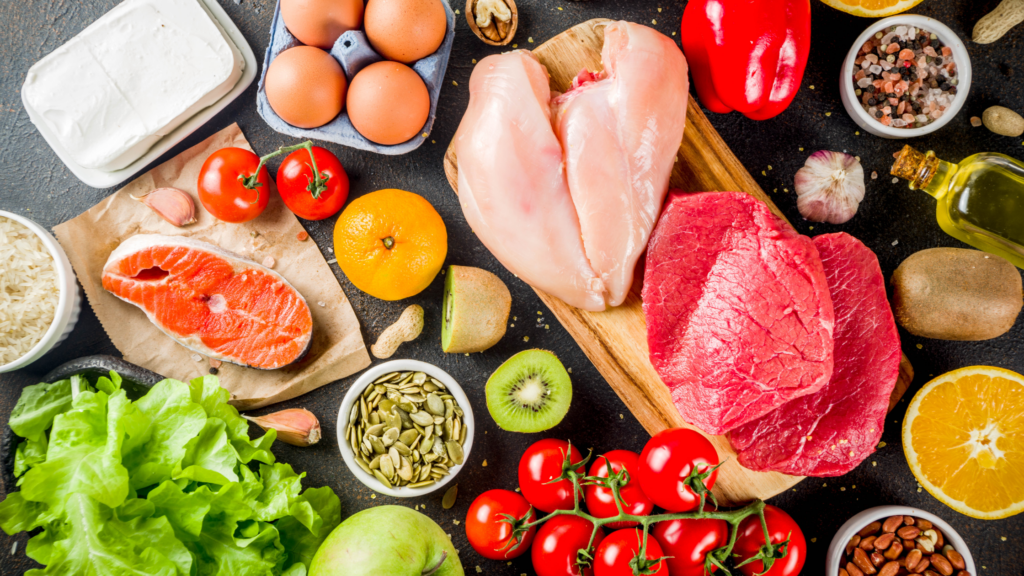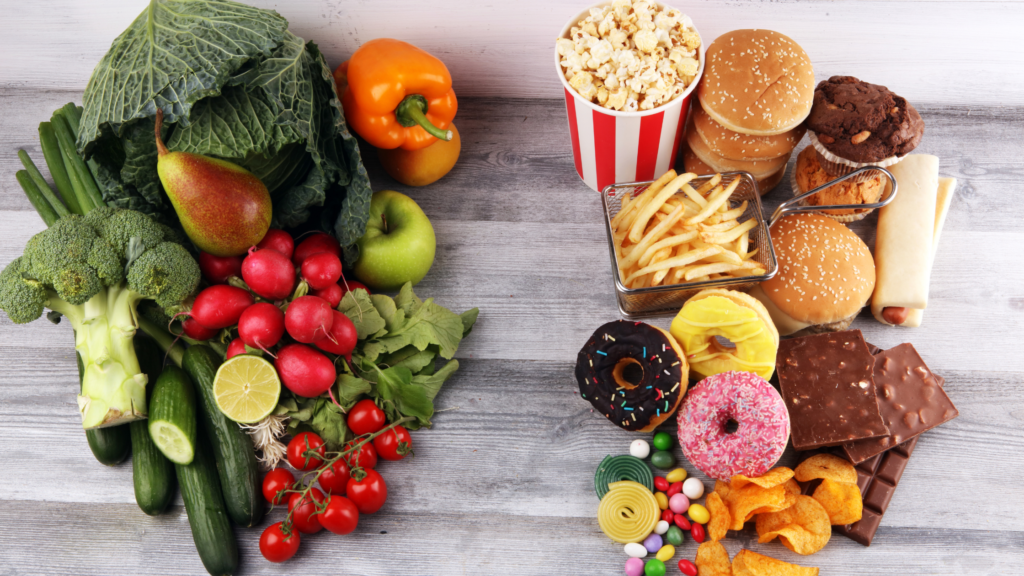Dr. E on the News: Why Nutrition is the Missing Piece in Mental Health, Sleep, and Chronic Inflammation
You may have caught me on the news recently talking about something that doesn’t get nearly enough airtime: nutrition as medicine.
The segment was short, but the implications are huge. We’re dealing with more than just busy schedules and burnout. We’re dealing with a health system that often overlooks the root causes of chronic issues like fatigue, insomnia, and mood disorders.
That’s why I was excited to go on-air and shed light on a powerful—but often ignored—tool in our healthcare toolkit: food.
If you missed it or want to dig deeper, keep reading. This blog is your deeper dive into the science behind the headlines, the truth about chronic inflammation, and the simple (but powerful) ways you can start using food to feel better—mentally and physically.
The Double-Edged Sword of Inflammation
Let’s start where the segment did: inflammation.
As I said on-air, not all inflammation is bad. It’s part of our body’s natural defense system. When you cut your finger, get sick, or fight off bacteria, inflammation is what helps you heal.
But when inflammation becomes chronic, that’s when things get complicated.
Chronic inflammation is sneaky. It simmers beneath the surface—fueled by stress, processed foods, lack of movement, environmental toxins, and yes, poor nutrition. Over time, it contributes to conditions like heart disease, diabetes, autoimmune disorders, depression, and even dementia.
As a nurse practitioner, I see this all the time. Patients come in with vague symptoms: fatigue, brain fog, joint pain, poor sleep, mood swings. And too often, they leave with prescriptions instead of answers.
But what if the real solution was in their pantry?

Sugar, Carbs, and the Crash-Cycle
Let’s talk about sugar. Not the sugar in fruit or honey, but the added sugar hiding in everything from salad dressings to “health” bars.
Added sugars and refined carbohydrates are two of the biggest culprits when it comes to chronic inflammation.
What’s a refined carb? Think white bread, white rice, pastries, and even most breakfast cereals. These foods have been stripped of their natural fiber and nutrients, leaving behind a fast-acting starch that spikes your blood sugar—and then crashes it.
As I mentioned in the clip, a sweet potato is a complex carb. It’s got fiber, vitamins, and it digests more slowly. White bread? That’s a blood sugar roller coaster.
When your blood sugar spikes and crashes throughout the day, so does your energy, your mood, and your ability to focus.
That 3 PM slump? It’s not just about being tired. It’s about the way your body is processing what you ate for lunch.
Why “Diet” Is a Dirty Word
A lot of people associate healthy eating with restriction. Calorie counting. Weight loss.
But as I said in the segment—I don’t even like to use the word “diet.”
This isn’t about shrinking yourself. It’s about fueling yourself.
You don’t need fewer calories. You need better ones. Nutrient-dense food that supports your body, your brain, and your sleep.
I tell my patients to start thinking about nutrition as information. Every bite of food sends a message to your body. It tells your hormones, your immune system, your neurotransmitters how to function.
And when you get the right balance of protein, fats, fiber, and complex carbs—your body responds. You think clearer. You sleep better. You’re less reactive, more focused, and less likely to reach for that 4th coffee of the day.

Food and Mental Health: The Forgotten Link
Here’s a question I ask a lot as a nurse practitioner: How’s your mood?
We often separate the body and mind in medicine. But the truth is, mental health is directly tied to nutrition.
Low protein intake, blood sugar instability, and deficiencies in vitamins like B12, D, and magnesium can all impact your brain chemistry. Poor gut health—often triggered by inflammatory foods—can disrupt serotonin production, since the majority of serotonin is actually produced in the gut.
If your mood is unpredictable, your sleep is off, or your anxiety is through the roof… your plate might be a good place to start.
Want to boost your mental health through food? Try these principles:
- Protein at every meal, especially breakfast.
- Balance your carbs with fiber and healthy fats.
- Limit added sugars, especially in beverages.
- Stay hydrated. Dehydration impacts your energy and mood more than you think.
What Does “Using Food as Medicine” Actually Look Like?
Let me be clear—using food as medicine doesn’t mean perfection.
You don’t need to eat kale five times a day or give up birthday cake forever.
It just means being more intentional. Understanding how nutrition impacts inflammation, energy, and mental clarity—and making decisions from a place of empowerment, not guilt.
Here’s what that could look like in practice:
- Swapping your sugary breakfast cereal for eggs and avocado toast.
- Packing a lunch with protein, like grilled chicken or lentils, instead of relying on vending machines.
- Having a banana with almond butter instead of a processed granola bar when you need an afternoon pick-me-up.
- Adding color to your plate: leafy greens, berries, sweet potatoes, bell peppers.
As a nurse practitioner, I often work with patients to develop small, sustainable changes that make a big impact. And when nutrition becomes a consistent part of their routine—not a punishment or a phase—their bodies begin to heal in ways medications alone can’t replicate.

Sleep, Energy, and the Power of Protein
In the clip, I mentioned one of my favorite food strategies: spreading out your protein throughout the day.
Protein isn’t just for athletes. It’s the building block of hormones, enzymes, and neurotransmitters. It helps you stay full, balances blood sugar, and supports restful sleep.
If you’re eating most of your protein at dinner and skipping it in the morning, you’re missing a huge opportunity to stabilize your energy.
Try this:
Instead of just coffee for breakfast, add in scrambled eggs or a smoothie with protein powder. For lunch, add chickpeas to your salad or choose turkey on your sandwich instead of just cheese.
It’s a small shift—but it makes a massive difference.
The Bottom Line
We’re not in a calorie crisis. We’re in a nutrition crisis.
We’re overfed but undernourished. And as a nurse practitioner, I’m not seeing people with lack of access to food—I’m seeing people with lack of access to the right food.
When we focus on nutrient-dense foods—real food—we see improvements in energy, sleep, skin, digestion, mood, and even chronic conditions.
It’s not about perfection. It’s about direction.
Every small swap matters.
Watch the Segment
I only had a minute to scratch the surface on-air—but the response was powerful. People are ready to reclaim their health, and it starts with what’s on your fork.
If you haven’t already, watch the news clip above and share it with someone who needs a reminder that they deserve to feel good in their body.
And remember: food isn’t just fuel. Nutrition is medicine.
Let’s start treating it that way.
— Dr. E
